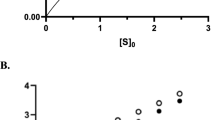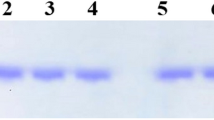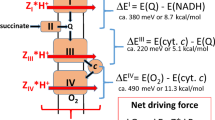Abstract
IT is generally accepted that lactate-dehydrogenase (LDH) exists in more than one molecular species. LDH isoenzymes have been separated by (among other methods) using their eventual heat stability at 58° C (ref. 1). It has been shown that the LDH fraction prominent in heart muscle is more stable to heat than other fractions from, for example, liver tissue2. There is good correlation between this heat-stable isoenzyme and the fastest moving, anodal LDH I (nomenclature of Wieme3) in electrophoresis.
This is a preview of subscription content, access via your institution
Access options
Subscribe to this journal
Receive 51 print issues and online access
$199.00 per year
only $3.90 per issue
Buy this article
- Purchase on Springer Link
- Instant access to full article PDF
Prices may be subject to local taxes which are calculated during checkout
Similar content being viewed by others
References
Latner, A. L., and Skillen, A. N., Proc. Assoc. Clin. Biochem., 2, 100 (1963).
Plagemann, P. G. W., Gregory, K. F., and Wróblewski, F., Biochem. Z., 334, 37 (1963).
Wieme, R. J., Lancet, i, 270 (1962).
King, J., J. Med. Lab. Technol., 18, 168 (1961).
Richterich, R., Schafroth, P., and Franz, H. E., Enzymol. Biol. Clin., 1, 114 (1961–62).
Author information
Authors and Affiliations
Rights and permissions
About this article
Cite this article
KELLEN, J. Isoenzymes of Lactate-dehydrogenase in Micro-organisms. Nature 207, 783–784 (1965). https://doi.org/10.1038/207783b0
Issue Date:
DOI: https://doi.org/10.1038/207783b0
This article is cited by
-
Zum elektrophoretischen Nachweis von Isozymen der Lactatdehydrogenase, der Malatdehydrogenase und der Glucose-6-phosphatdehydrogenase bei Dermatophyten, Scopulariopsis brevicaulis und Sporotrichum Schenckii
Archiv f�r Klinische und Experimentelle Dermatologie (1969)
Comments
By submitting a comment you agree to abide by our Terms and Community Guidelines. If you find something abusive or that does not comply with our terms or guidelines please flag it as inappropriate.



